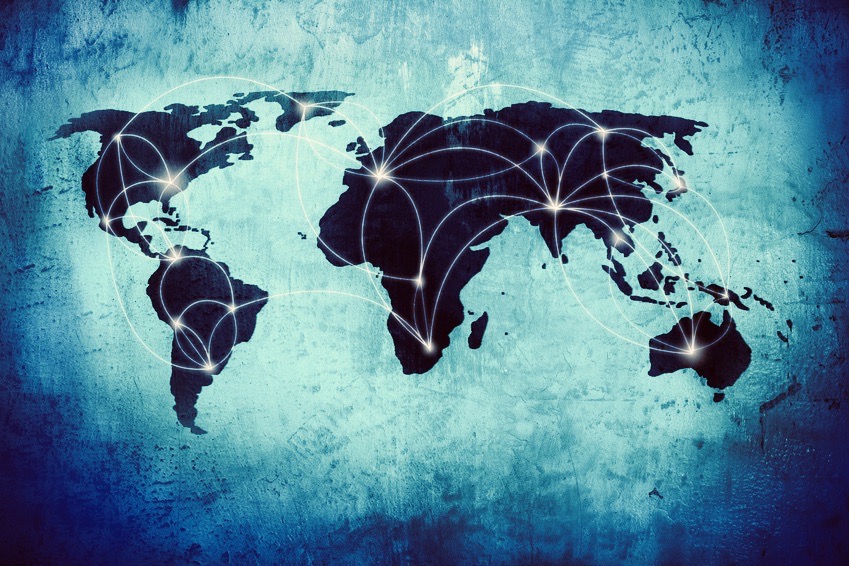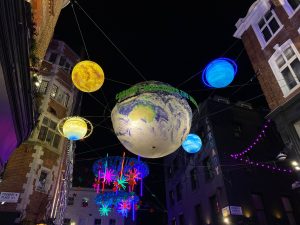HANS STOISSER
“Hysteresis” – What will not go back to normal

Just a few weeks ago, I was struggling to fit my travelling plans into the short month of March. Today I look back to a busy week of reorganizing and see an empty calendar for the weeks to come.
I know this is what many of us are faced with, at this moment of a raising pandemic. Futurists had it in their textbooks, but only now we are getting to know how this will really unfold. At this very moment, we are at the beginning of downsizing our social contacts and therewith daily life and economic activities.
After the pandemic
It is impossible to predict what will come. It seems to be easier to think about the world after the pandemic. This is what I want to do with this short blog post.
My basic hypothesis is that things will not go back to “normal”. Systems science talks of “hysteresis”, a tendency of social systems to change permanently after an external shock.
Specifically, because our fight against Covid-19 touches the heart of what our modern societies are all about.
Cutting down interlinkages
The overall target of all measures are social contacts. In radically cutting them down the spread of the pandemic shall be contained. The following graph pictures the scenarios quite well (In Austria, cutting down social contacts by 25% would reduce the peak number of infections by 82%):

Yet, cutting down social contacts also means cutting down our network of interlinkages between companies, institutions and all other organisations. And cutting down our network of interlinkages means cutting down our network of economic value chains.
Obviously, this is the core of what we call “globalisation” and what modern societies are based upon.
Increasing interlinkages – a constant of humankind
An increasing division of labour, increasing trade, and therewith increasing interlinkages and inter-connectedness have been a constant in humankind’s history. Not only since the last boost of globalisation which started some 3 decades ago. Or since the first industrial revolution 250 years ago. And also not only since humans invented agriculture and settled down some 10.000 years ago. But at least since the first hand-wedge was invented some hundred thousands years ago when human beings started to do specialized work.
In the last few decades, the division of labour has been brought to the global level. An interlinked global society has emerged, allowing 7,5 billion people today and 10 to 11 billion people in the future to live on this planet and to eradicate poverty for hundreds of millions of people.
In the West, we often don’t to see these positive effects of enabling the rest of the world in participating in this unprecedented economic surge. However, we see that the ever-increasing level of people, economic activities and interconnectedness has also brought global warming and a hitherto unknown vulnerability which we experienced dramatically for the first time in the 2007-2009 financial crisis.
In the end, more, not less interlinkages
While writing these lines, reports on more and more restrictions are coming in constantly: Austria is shutting down borders for people from Ukraine and several other countries, Germany is shutting down its border with Austria. And Australia, I just read, is cutting itself off from the rest of the world.
Clearly, all these measures are meant temporarily. Nevertheless, the world will look different once we have overcome this pandemic.
Nobody knows, but in a couple of months we will restart our systems. By then, economic actors will be different. Some companies will have disappeared, some will have rethought their products and logistics. And many will have new plans for doing business in the future.
As we can see already, the fight against Covid-19 is a global one. Globally interconnected scientists, companies and governments are tirelessly working on innovative solutions. This shows the direction in which the globalized system will develop.
The level of interconnectedness will not decrease compared to the pre-pandemic level but increase. However, it will be different.
We will never go back to the pre-Covid-19 economic world. The external shock will have changed our system. This is what systems science tells us and what hysteresis is all about.
Resilience and sustainability
Unless we enter a full-blown global crisis with all its long-term consequences, the following might be an outcome:
- The sudden shutting down of our global value-creating networks will give us a much better understanding of our globalised economic system and of our own society and how it is embedded in global networks. Norms will be much better understood, values much more shared.
- The role of the nation-state will be re-defined as an actor within the interlinked global society. Its role in securing the critical infrastructure will have been strengthened.
- Global economic value chains will have become more resilient by being more decentralised with more redundancies.
- Global economic value chains will also have become more ecologically sustainable. Firstly, because the fight against the ongoing pandemic will become a role model in pursuing a global policy issue. Secondly, because after the Covid-19 crisis business actors will be different and the fight against further global warming and the promotion of renewable energy resources will be very high at the agenda.
- Resilience and sustainability will have been made possible by shifting more and more economic activities into the digital space and therewith increasing the level of global linkages, interconnectedness and global value networks.
And what about African-European relations? When international companies will have learned how to structure in a more resilient way, they will increasingly base their activities on diverse international teams working in open networks.
However, all these changes require a new culture of how we communicate and collaborate. – In the best of all cases, that is the positive effect the pandemic will have brought us.
Because this fits to what will come, here the video documentation to the Side-Event “Disrupt Collaboration” at the ‘High-Level Forum Africa-Europe’ in Vienna on December 19th, 2018:



